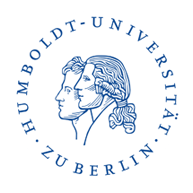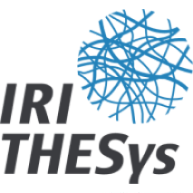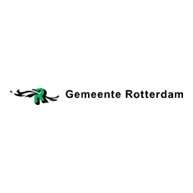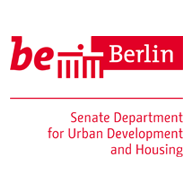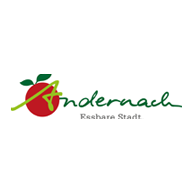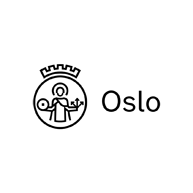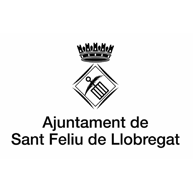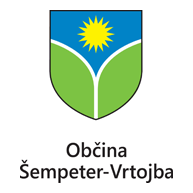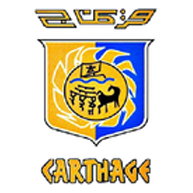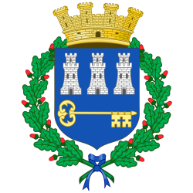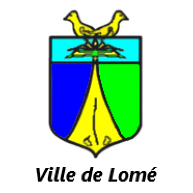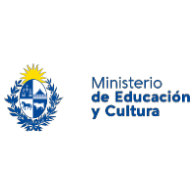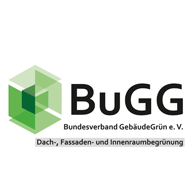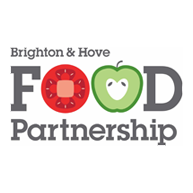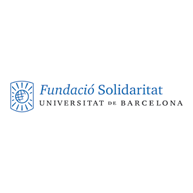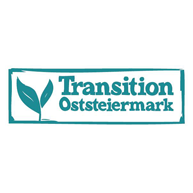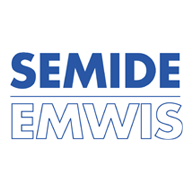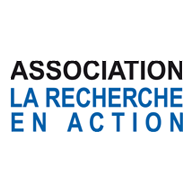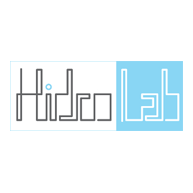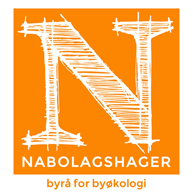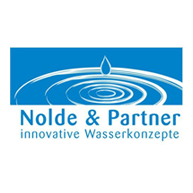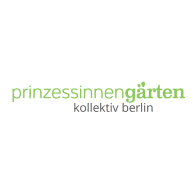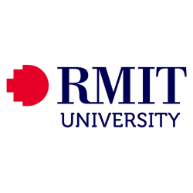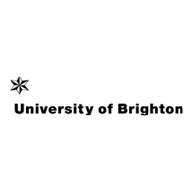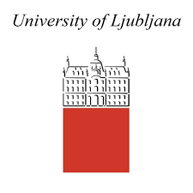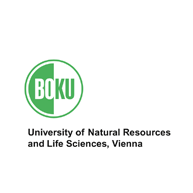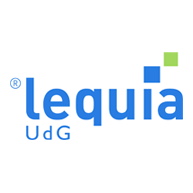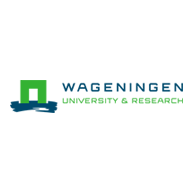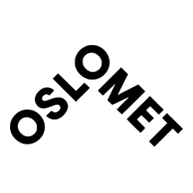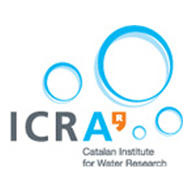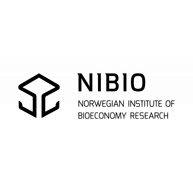Who is EdiCitNet?
The EdiCitNet Consortium is an international team of experts from different societal sectors and scientific disciplines related to Edible City Solutions (ECS). The whole group consists of 32 partners with representatives from local city administrations, Non-Governmental Organisations (NGOs), Small and Medium Enterprises (SMEs) and other Edible City Solutions around the world.
The core of the project is a network of urban communities in Europe, Africa, Latin America and East Asia working together to build a better world for everybody in the cities.
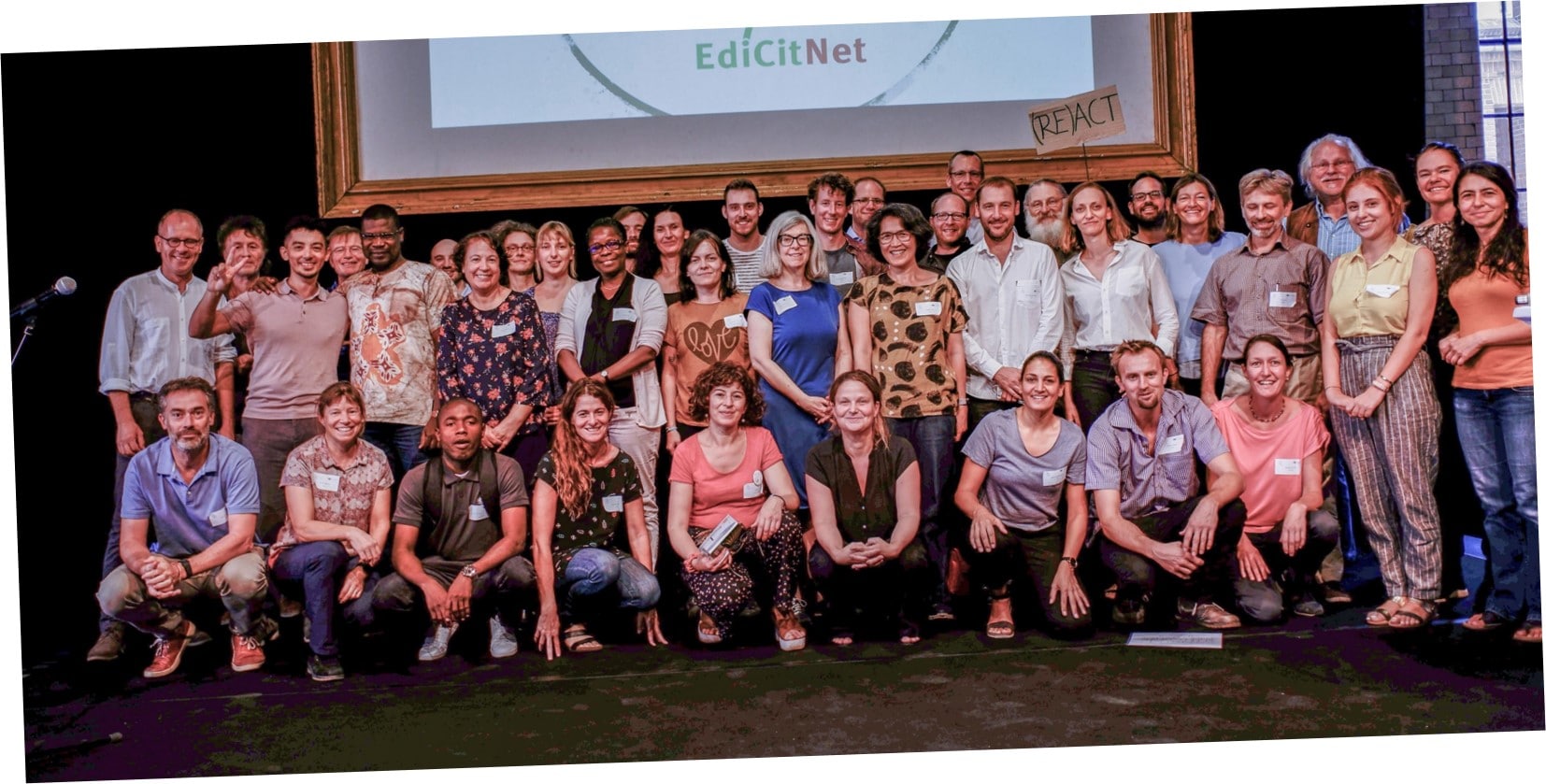
Coordination
Cities
NGOs & SMEs
Universities & Research Institutes
Humboldt University of Berlin
The Humboldt-Universität zu Berlin (UBER) coordinates the project EdiCitNet and is involved in all 9 work packages via the Integrative Research Institute for Transformations of Human Environmental Systems.
UBER is one of Germany’s leading research universities with around 5,000 employees, 35,000 students, and an institutional budget exceeding 250 M€ per year. As one of eleven German universities, the Humboldt-Universität was chosen “University of Excellence” in June 2012. In the Excellence Strategy research competition run by the German federal and state governments 7 Clusters of Excellence of Freie Universität Berlin, Humboldt-Universität zu Berlin, Technische Universität Berlin, and Charité – Universitätsmedizin Berlin have been approved. As of 2019, the interdisciplinary research projects are each being funded for seven years with up to ten million euros per annum.
In an international comparison, Humboldt- Universität ranks among the top ten of German universities. Scientists here research socially relevant topics and challenges of the future and communicate these with the public. Humboldt-Universität invests all its energy in being a place of excellent research and teaching. Its aim is to promote young talents and to positively influence society and economy outside the university framework.
Website: https://www.hu-berlin.de/en?set_language=en
Integrated Research Institute of Transformation of Human-Environment Systems
The workload of UBER in the EdiCitNet project is mainly taken over by the research group Multifunctional Landscapes, at Integrated Research Institute of Transformation of Human-Environment Systems (IRI THESys).
IRI THESys – is a flagship activity of Humboldt-Universität zu Berlin. As integral component of HU’s institutional strategy, the IRI THESys is designed as an inter-faculty research institute. It contributes to sharpening the university’s research profile and promoting international cooperation. The institute will develop long-term collaborative research concepts and projects with a focus on ongoing transformations of human-environment systems. The IRI THESys was founded in May 2013 by enactment of Humboldt-Universität’s academic senate and its opening was celebrated in October 2013. In a first phase, IRI THESys was funded for five years. After its positive evaluation, the institute could be prolonged for a second phase of four years, starting in June 2018.
The members of IRI THESys come from five different institutes of Humboldt-Universität and various regional institutions. Together they aim for:
- the advancement of excellent interdisciplinary research for global sustainability, especially in the context of land and resource use, urbanisation processes, adaptation to climate impacts as well as intra- and intergenerational justice,
- the development of (new) research collaborations at HU, in the Berlin-Brandenburg region and internationally,
- the promotion of young researcher by offering excellent conditions for developing individual pathways, as well as
- making IRI THESys, HU and Berlin an internationally known and visible location for state-of-the-art research for global sustainability.
Website: https://www.iri-thesys.org/
City of Rotterdam
The City of Rotterdam is one of the Front-Runner Cities (FRC) of EdiCitNet. As such, Rotterdam is responsible for running an innovative Edible City Solution (ECS) in Rotterdam as a Living Lab and mentoring Follower Cities (FC). Furthermore, the City of Rotterdam will lead the Work Package on Living Labs in FRC: Demonstrating innovative ECS for replication and up-scaling and will bring in its expertise and its views as a city.
The city / municipality of Rotterdam is a local government with nearly 11.000 employees. The city is responsible for carrying out public tasks to create a positive social and economic climate for people to live, work, recreate and invest. Located in a delta landscape, it has an open economy susceptible for global changes (Port of Rotterdam). Its 630.000 citizens with 175 nationalities can be considered extremely pluralistic. Rotterdam is renowned in reinventing itself: having its city centre decimated during the war, 75 years later the same centre is awarded the best inner city of The Netherlands. It has for a long time been one of the least favourite largest cities to live in, but now it has reinvented itself as a buoyant cool urban hotspot attracting many new residents and companies (with many accolades, such as becoming number 5 in ‘top cities in the world’ of Lonely Planet’s Best in Travel 2016). Engaging in the resilient cities, pioneering in its regional network for next economy and the energy transitions shows its strong engagement to ensure a stable living environment for its citizens. Rotterdam is also internationally active member of C40 (www.c40.org) and 100RC of the Rockerfeller foundation and has published recently its resilience strategy (www.resilientrotterdam.nl), which implementation is ongoing.
Website: https://www.rotterdam.nl/
City of Oslo
The City of Oslo is one of the Front-Runner Cities (FRC) of EdiCitNet. For a number of years Oslo has strengthened a network of actors in urban agriculture with a wide range of purposes, e.g. biodiversity, local food production, education, social cohesion, inclusion, entrepreneurship and innovation. The Oslo Living Lab will implement innovative Edible City Solutions to further local actors, strengthen its strategy on urban agriculture and mentor Follower Cities (FC).
Oslo is the capital of Norway and the country’s largest city with approximately 670.000 inhabitants. Oslo is located between the Oslo Fjord and the protected Marka forest, which constitutes 68 per cent of Oslo’s acreage. Within the city, forests and green zones make up 32 per cent of the urban space including the islands, parks and cemeteries, sport and recreation zones and areas regulated for ecological purposes, such as urban agriculture and wild flower meadows. Oslo is one of the fastest growing cities in Europe with about 2% population increase per year – constituting both a great opportunity and a great challenge. The City has to plan and build for growth in terms of infrastructure, schools, care facilities and service production, while implementing an ambitious environmental and climate policy. Instead of expanding outward, Oslo is being sculpted from within through compact urban development and the creation of new hubs and transport solutions. This ensures sustainable and climate-neutral urban development and the preservation of its blue-green character.
City of Berlin
Berlin is the only EdiCitNet city with the hybrid role of a Front Runner City and a Follower City. As a Follower City Berlin will take the chance of the masterplan to develop new and enhance existing ECS. While being a Front Runner City, Berlin will develop a living lab on two sites – a former cemetery and a former agricultural enterprise – together with the EdiCitNet partner PRINZ, which has a lot of experience in community gardening.
The goal of both interventions – the masterplan and the living lab – is to support socially disadvantaged neighborhoods, to promote social cohesion and to improve living conditions.
Berlin with its character as multi-ethnic and multi-functional city and its 3.75 million inhabitants is a magnet for people and business, a city that is growing and changing. But rising rents and rapidly growing population endanger intact communities and the feeling of belonging to a neighbourhood. Shaping the future of Berlin as a growing city is a task that touches social, economic and environmental issues at the same time.
The local government decided recently to become an Edible City. An online platform for a productive city and urban gardening will be developed, a nutrition strategy is almost finished, many ECS projects have already been implemented, and the society is highly interested in gardening and healthy food. EdiCitNet will take those ongoing processes as a chance, put them together with the ability of Berlin to innovate and its development potential to create ECS to the social challenges which face the city.
City of Andernach
The City of Andernach is one of the Front-Runner Cities (FRC) of EdiCitNet. As such, Andernach is responsible for running an innovative Edible City Solutions (ECS) in Andernach as a Living Lab and mentoring Follower Cities. In addition Andernach supports the establishment of an international network.
Andernach is a small town with 30.000 inhabitants. The municipality of Andernach is a local government with about 200 employees. Andernach started to be an edible city since 2010, when 101 tomato varieties were planted in the city centre in order to demonstrate the biodiversity of vegetables. Due to the positive feedback from the citizens, the municipal administration considered further developing the concept of edible Andernach. An increasing biodiversity of fruits and vegetables were planted and even livestock, such as chicken and sheep, is kept in the city. Vegetables, culinary herbs or cut flowers turned green spaces into exciting areas for the citizens. Instead of “Keep off!” one read “Feel free to pick!” The concept of edible Andernach was extended by a social component, when long-term unemployed people were integrated into the maintenance of the plants bed. Since the edible city also turns out to be a tourist magnet, the concept can be regarded as a success on many levels.
Website: https://www.andernach.de/
City of La Havana
HAVANA (2.1 million inhabitants) is an exceptional example for urban agriculture on large scale. After the break of the soviet bloc Havana fell into the worst economic crises in history. Since 1994 a governmental strategy made Havana by now to the most successful examples of urban agriculture worldwide. More than half of the consumed food is grown organically on-site. At first, yields were low, owing to lack of farming experience and inputs. But with strong government support, urban agriculture was rapidly transformed from a spontaneous response to food insecurity to a national priority. Urban farmers in Havana use predominately low tech technologies and practices achieving yields of up to 20 kg per m2, 10 fold higher yields than commonly achieved in mixed stands small scale agriculture. Among the used technologies are drip irrigation, organoponics, regular addition of compost and other good horticultural practices (e.g. the use of well-adapted varieties, mixed cropping, crop rotation and integrated pest management). In the process, Havana has also become a pioneer in a worldwide transition to sustainable agriculture that produces ’more with less’. This example shows how ECS can be mainstreamed in a city and provides up-scaling and feasibility knowledge in a Living Lab, accompanied by huge experience on urban planning level and strategic implementation.
City of Sant Feliu de Llobregat
The City of Sant Feliu de Llobregat is one of the Follower Cities (FC) of EdiCitnet. The agricultural area of Sant Feliu has been ruled out by speculative processes as a non regulated area through dividing the farmland in small plots and increasing the renting of Sant Feliu’s agricultural park. This prevented the formation of cooperatives of young or long-term unemployed migrants and the improvement of the diet of people with risk of social exclusion. A social farming project successfully includes 100 families. The municipality wants to extend the farming area and explore the creation of micro SMEs on Edible City Solutions (ECS).
Sant Feliu de Llobregat (44.000 inhabitants,1.6 million in agglomeration) belongs to the metropolitan area of Barcelona.
Sant Feliu stands out for the social cohesion that has worked for years, among others, through the social pricing of essential services for citizens and is developing a Social Rescue Plan that puts the vulnerable citizens in the center of the policies. A cohesive, dynamic, committed city and in solidarity, the citizen and associative fabric from which he has opened his arms to the refugees and participates broadly in social and cooperation for development projects.
It is a city that has bet for transparency, that has taken the City Hall to win a prize for excellence in the field of open government. It is a city that has an active business fabric and prepared infrastructures ranging from small collaborative spaces and incubators to the various industrial estates with good accessibility offering good services.
Sant Feliu that bets strongly for innovation, which led it to be distinguished as a City of Science and Innovation 2014 at the state level thanks to the ability to incorporate elements of innovation in such diverse fields such as business promotion, social cohesion, education or the promotion of employment. In addition, it is a smart city, which has a broad deployment of infrastructures and installations in the territory and to the equipment like the optical fiber. It is an environmentally sustainable city, which has been able to benefit from and boost its assets Parc Agrari del Baix Llobregat and the Natural Park of the Serra de Collserola, and is concerned about adopt measures of energy efficiency and fight against climate change from everyday small gestures until the big decisions taken by the City Council or the main companies.
Website: www.santfeliu.cat
City of Letchworth
Letchworth Garden City is a Follower City (FC) and will therefore to trialing a testing concepts that arise from the front runner cities, as well as formulating proposals and propositions as patrt of the wider project. In particular Letchworth will considering the link between Garden City Principles and the initiatives arising from the project.
Letchworth Garden City is the world’s first Garden City. It is the brainchild of Ebenezer Howard and is his experiment town following the publication of his hugely significant book in 1898, ‘To-Morrow A Peaceful Path To Real Reform’, later republished as ‘Garden Cities of Tomorrow’. The town was developed on the basis of Howard’s principles and now has a population of 35,000 and 14,000 people are employed there. Letchworth still retains many of Howard’s core values and principles, with the Letchworth Garden City Estate being vested with a community benefit society, Letchworth Garden City Heritage Foundation, which is a successor organisation to First Garden City Limited, which developed the garden City. The Foundation has a community governance structure and a long stewardship role, but is also able to reinvest around £4.5 million each year back into the local community, through its charitable commitments.
Website: https://www.letchworth.com/
City of Šempeter
The Municipality Šempeter-Vrtojba is one of the Follower Cities (FC) of EdiCitNet. As such, Municipality Šempeter-Vrtojba is responsible for developing an innovative Edible City Solution (ECS) in Šempeter – Vrtojba in collaboration and under mentoring of Front Runner Cities (FRC) to find the best possible way how to integrate specific ECS to urban life and master plan. The Municipality Sempeter-Vrtojba is involved in WP1: Urban governance and network, WP2: Toolbox for enhancing ECS learning, WP4: Transition Pathway – Planning for ECS in Follower Cities and WP6: Consultancy, Business Development & Market Uptake. Within the project will participate in the knowledge transfer between FRC and FC.
The Municipality of Šempeter-Vrtojba is located on the western edge of Slovenia, right next to the Italian border and only 150 km from Venice (Italy). Green woodlands, vineyards, fields and meadows lend an air of a richly colourful scene. The Vrtojba-Bilje knolls, along with a large part of the surrounding plain offer the best conditions for viticulture, fruit farming, horticulture, green grocery and floristry. Hence, the area is also known as “The Garden of the Goriška Region”.
Its position in the broader Goriška region provides excellent conditions for the economy’s development. Due to its attractive location, its public areas provide a vision of strategic development in terms of logistics, tourism and other economic activities. The area is also interesting as regards landscape and climate.
The local community is aware of the challenges and is taking action in order to improve the entrepreneurial culture and create an effective and completely supportive environment, to ensure the best infrastructure possible and to create an effective environment for development and innovation.
City of Carthage
City of Carthage is one of the Follower Cities (FC) of EdiCitNet. As such, Carthage will follow mentoring from the Front Runner Cities in the project, to develop an urban plan on an innovative Edible City Solution (ECS) together with EdiCitNet project.
Carthage is the main green city of Tunisia. The urban green space per capita is equal to 25m2 and ensuring the expansion and maintenance of this green area with the contribution of its citizens is a daily goal for the municipality. By participating in this project, Carthage aims to return food production to its urban space through the use of green areas.
The city of Carthage was founded the 15 June 1919. It is composed by 17010 inhabitants and is located in the north-eastern Tunisia, about 15 km from Tunis on a hill rising to nearly 57 m and its coastline stretches about 3 km. It is part of Governorate of Tunis. It is bounded at East by the Mediterranean Sea. The Total area is 640 hectares with 63.58% as archaeological zone. The site of Carthage is classified on the World Heritage List established by “UNESCO”. Most economic activities are linked to tourism and services (visited by nearly one million tourists per year).
The municipality is composed of three districts: Carthage, Carthage Mohamed Ali and El Yasmina. The last two districts are popular and occupied by the ¾ population of Carthage. Its archaeological character increases the pressure and challenges faced during the daily management of its population which underline the need for specific strategies and innovative solutions to preserve the environment (water, waste, ecosystem) and enable the development of popular districts. In this framework, urban areas, agriculture and other nature-based solutions are the goal of the municipality’s participation to this proposal.
City of Lomé
The city of Lomé is one of the Following Cities (FC) of EdiCitNet. It is our first experience in this field and we do it with dynamism and determination. We rely on the skills of the project team and organisations working in the environmental field, especially in the healthy food sector, such as OADEL (Organisation pour l’Alimantation et le Développement Local). Together with the newly elected local officials, we will develop and support the strategy for the implementation of Edible City Solutions. Finally, we will implement measures of sensitisation, information and appropriation of the project by the inhabitants of Lomé through radio and caravans.
EdiCitNet – City of Lomé is a pilot project to promote urban agriculture, the sale of organic fruits and vegetables without fertilisers or chemicals to the citizens of Lomé in order to ensure public health. The city of Lomé has five districts, in each of which gardens and fruit trees will be established in certain public spaces.
Website: http://ville-lome.tg/
City of Montevideo
The Ministry of Education and Culture as partner of the EdiCitNet project works in close coordination with the Municipality of Montevideo. Montevideo is a Follower City (FC) sharing the experience with other project partners, adapting to local context the best practices of Edible City Solutions (ECS) and Nature-Based Solutions (NBS). The City has been working in Agro-ecological Urban Agriculture for over a decade and other related topics such as food security and sovereignty, community organisation, food production, nutritional education, promotion of healthy eating habits, attention to groups in vulnerable situations and their social inclusion.
The Ministry of Education and Culture (MEC) is responsible for the coordination of national education, promotion of the country’s cultural development and preservation of artistic, historical and cultural heritage of the nation, as well as innovation, science, technology, promotion and strengthening of human rights’ observance.
The Ministry through the Direction of International Cooperation and Projects (CIP), acts as a cross-link to all areas of competence of MEC, with external actors in terms of cooperation, contributing to social development through exchange and collaboration. It promotes coordination and cooperation between national and foreign agencies and institutions, in order to exchange ideas, information and experience, and provide mutual support to programs and projects that are proposed in cultural, educational and scientific technological management.
In its planning it has a Resilience Strategy aimed to strengthen the citizen’s commitment to caring for the environment and improving its capacities to understand, prevent and respond to situations of risk, from a perspective of resilience, like nature-based initiatives. Two areas closely related to the Project are Rural Montevideo (Department of Economic Development) and Green Areas (Department of Public Spaces).
Website: https://www.mec.gub.uy
University of Brighton
The project partners for EdiCitNet are located in the “School of Architecture & Design”. They focus their mostly practice-based/action research around the subjects of space production and productive urban landscapes, including: green infrastructure strategies, urban agriculture and food systems design. University of Brighton will mainly be involved in tasks which aim to facilitate the coherent integration of Edible City Solutions (ECS) into urban planning strategies in Follower Cities (FC). University of Brighton will also contribute to the generation of transferable guidelines and reference frameworks.
The University of Brighton (UoB) is a community of 21,000 students and 2,800 staff based on five campuses in the coastal cities/towns of Brighton, Eastbourne and Hastings. The UK Research Excellence Framework (REF) 2014 confirmed our position as a leading institution in the UK in the quality-research league tables and ranked us 27 out of 128 universities for our world-leading research impact. In the 2014 REF results, 92 per cent of our research was rated as “world leading or internationally excellent” in terms of the impact it makes. In 2016, the University has (again) retained its “HR Excellence in Research Award” from the European Commission after a four-year review. The University of Brighton is strongly focused on business and community engagement, having received national awards for its Community University Partnership Programme (CUPP), and is home to one of the most successful Knowledge Transfer Partnerships (KTP) Centres in the UK.
University of Ljubljana
The University of Ljubljana is co-leading WP2 (Toolbox for Enhancing Edible City Solutions (ECS) learning and implementation). University of Ljubljana is responsible for the development of the EdiCitNet database and co-development of the Catalogue and the serious gaming. The University is also involved in WP4, particularly in assisting the Follower City (FC) Sempeter pri Gorici in applying the Transition Pathways methodology and in setting up the serious gaming.
University of Ljubljana was established in 1919. It is listed amongst the top 500 universities in the world according to the ARWU Shanghai, Times THES-QS and WEBOMETRICS rankings. UL has 21 Faculties, 57,000 students and 5,000 staff. Three faculties collaborate in the EdiCitNet project: Faculty of Civil and Geodetic Engineering, Department of Environmental Civil Engineering (UL FGG), leading national institution for education and research in the field of water engineering addressing the entire water cycle, water quality and quantity, floods, water and nutrients as resources and aspects of various water (re)uses. Biotechnical Faculty (UL BF), Agronomy Department, Centre for Agricultural Land Management and Agrohydrology (CALMA) is a leading national institution dealing with natural resources management in agricultural landscape and pertaining environmental concerns, and Faculty of Health Sciences, one of the youngest faculties at University of Ljubljana. It covers preventive and curative health aspects, environmental risk assessments including healthy living environment.
Website: https://www.uni-lj.si/eng/
University of Natural Resources and Life Science (BOKU), Vienna
The BOKU team aims at facilitating the integration of Edible City Solutions (ECS) with a social benefit within the overall urban planning process of the project’s Follower Cities (FC). Specifically they use an innovative Transition Pathway Methodology, focusing on systems mapping, scenario development and transfer in order to foster ECS within FC masterplans.
For that we innovate methods to create such ECS as part of urban masterplans in a collaborative manner and train and guide FC to apply them.
The University of Natural Resources and Life Science, Vienna (BOKU) is one of Austria’s leading Universities in the field of sustainable development and transformation research. BOKU is a teaching and research institution that focuses on renewable resources that are a prerequisite for human existence. The relationships between society and the environment forms the basis of all activities at BOKU, and its foremost aim is to make decisive contributions to securing the well-being of future generations. Founded in 1872, BOKU today comprises 15 departments, located in Vienna and Lower Austria. The university is attended by approx. 12.700 students, provides study courses at bachelor, master and doctoral level. It has approx. 1100 staff who are engaged in teaching and research and a broad range of external lecturers.
Within BOKU the Department of Sustainable Agricultural Systems is the main department that deals with agricultural topics. Within this the Department the Division of Organic Farming employs five permanent scientists as well as 20 scientific assistants. The Division of Organic Farming, headed by Bernhard Freyer, bundles a spectrum of competences from the natural and social scientific fields for the area of expertise of organic farming, its related food sector as well as adjacent fields such as sustainability research.
Website: https://boku.ac.at/en/
University of Girona
University of Girona (UdG) will contribute to the project efforts to design Master Plans for the Transition Pathways and will bring its interdisciplinary expertise of its team in socio-cognitive analysis, water management and environmental decision-making. Understanding stakeholders’ perception will help tailor transition policies that can accommodate different value systems. Therefore, we will map the cognitive and cultural elements – problem identification, problem solving – that can help or hinder the transition path. UdG will also serve as a cord of connection between WP 4 and 2 and will work with Sant Feliu de Llobregat (Follower City) in their design of edible solution for their city.
Founded in 1992, University of Girona is nowadays one of the main economic and cultural drivers of the province of Girona, located in the north east of Catalonia (Spain). With more than 15.000 students in last academic term, the institution has 3 university campuses, 12 research institutes, 1 doctorate school and +100 research groups linked to 24 departments.
The Laboratory of Chemical and Environmental Engineering (LEQUIA) is a research group of the University of Girona (UdG) devoted to the development of eco-innovative environmental solutions; especially, within the water field. LEQUIA has a multidisciplinary team of 30 people, including university professors, postdoctoral researchers, PhD students and management support staff. Current research lines are: i) innovative bio-processes for treatment, resource recovery and synthesis of new products, ii) physico-chemical advanced processes for treatment and/or reuse of liquid and gas side streams, and iii) planning, control and evaluation of complex socio-environmental systems.
Website: http://www.lequia.udg.edu/
Wageningen University
As academic partner, the Business Management & Organisation (BMO) chair group at Wageningen University & Research takes care of strategic management and monitoring of the EdiCitNet project, stakeholder management and analysis, business model analysis, and business development. It is co-lead for the ‘Spreading the Seeds of Success’ workpackage on consultancy, business development and market uptake of Edible City Solutions (ECS) to drive urban resilience and enable global knowledge sharing. In that role, the BMO group supports edible city startups with tools and strategies for lasting economic, environmental, and social impact, including analysis and further development of P(eople)P(lanet)P(rofit)-layered business model canvasses.
Wageningen University & Research (WUR) focuses on the domain ‘healthy food and living conditions’. Located in the Netherlands’ ‘Food Valley’ region, a hub for over 15,000 professionals working in food related areas, WUR is dedicated to conducting highly interdisciplinary research and translating knowledge into practice, collaborating with governmental organisations, businesses, and fellow institutions/universities worldwide.
The Business Management & Organisation (BMO) chair group at WUR specialises in understanding and managing innovation, governance and sustainability of agri-food enterprises embedded in the value chain and influenced by the broader network of public and private stakeholders. In a globalising world, where firms face major challenges related to global warming, urbanisation and food security, the chair group provides the knowledge and insights needed to internally organise and govern firms appropriately and for firms to effectively collaborate in chains and networks.
Oslo Metropolitan University
Oslo Metropolitan University (OsloMet) is responsible for supporting and coordinating the Living labs and also for documenting and monitoring their processes and results.
The Oslo Metropolitan university is the second biggest university in Oslo, Norway, with about 20 000 students and 2200 employees. The University collaborates closely with the Oslo regions’ community, work- and cultural scene. It’s goal is to become a lead university, in the Nordic region, for research on professions.
The Work Research Institute (WRI), which is part of the Oslo Metropolitan University, is an social science institute based on contract research. It’s projects are mainly financed through funding from the Norwegian Research Council, Ministries, agencies, municipalities, workslife organisations, organisations within health and care and private companies.
The institute emphasises the importance of broad, action-oriented research programmes based on the needs of working life. The programmes develop in close collaboration with Norwegian business and industry, both in the public and private sector, as well as with national and international research institutions. The institute also carries out short-term projects for organisations, companies, government agencies and other public bodies.
The Work Research Institute employs a group of scientists in urban research. They do research on housing, participation and urban governance, place making, area based initiatives etc. As this research field is trans-disciplinary these researchers operate on a larger scale with researchers in other institutes within the University. Most of our staff members are social scientists. The institute also benefits from the expertise provided by its graduates in engineering, law and other disciplines.
The institute’s research and development work is organised in four research groups:
• Competence, work and diversity.
• Work inclusion.
• Innovation and enterprise development.
• Organisation of the welfare state.
Website: https://www.oslomet.no/en
Catalan Institute for Water Research (ICRA)
The Catalan Institute for Water Research (ICRA) is WP2 leader. As such, ICRA is responsible for the proper development of the toolbox (DSS/catalogue, database and serious game) for enhancing Edible City Solutions (ECS) learning and implementation. ICRA will also have a relevant role in defining and analysing socio-economic and environmental indicators (WP5).
The Catalan Institute for Water Research is a research institute inaugurated in 2009 by the Government of Catalonia within the framework of the Research Centres Programme of Catalonia (CERCA). ICRA seeks to provide a complete and efficient response to the problems and challenges related to integral water cycle and is, therefore, structured as a top-quality multidisciplinary centre around three main research areas: I) Resources and Ecosystems, II) Water Quality, and III) Technologies and Evaluation. Since his creation in 2006 ICRA has participated in more than 100 research and training projects, around 70 national and 30 European and international for a total of more than 14 M EUR. Among the latter, 1 ERC Starting Grant, 5 Marie Curie Reintegration Grants, 4 Marie Curie Initial Training Networks (2 as coordinator), 6 Marie Curie Individual Fellowships, 6 FP7 and 4 Horizon2020 collaborative projects: EdiCitNet, Hydrousa and more recently ScoreWATER and DWC (GAs still to be signed). We are also running 2 ERA4CS projects (1 as coordinator), 1 JPI WATER project as coordinator and more recently we have been awarded a PRIMA-IS project (GA still to be signed).
At the moment ICRA is running 40 national and around 16 European researches and training projects. Besides, ICRA is also involved in 10 projects of knowledge transfer with private companies. ICRA’s scientific work over the last year resulted in 288 news items appearing in the media (115 in the press, 36 in digital format, 3 on radio stations and 1 on TV). ICRA has also committed to social networks: on Twitter (@icrawater) it now has 203 more followers (reaching 626 followers in December 2017) and a total of 258 mentions and 5457 visits to its profile.
Norwegian Institute of Bioeconomy Research (NIBIO)
NIBIO – the Norwegian Institute of Bioeconomy Research has c.700 employees throughout the country. The institute delivers research, managerial support and knowledge for use in national preparedness, as well as for businesses and the society at large. NIBIO is owned by the Norwegian Ministry of Agriculture and Food.
The Department of Landscape Monitoring conducts mapping, analysis and research on agricultural landscapes, land use, land cover and landscape change. Our main topics are Driving forces and consequences of landscape change, and Indicators for landscape monitoring, nationally and regionally. The department is responsible for the national monitoring programme of the agricultural landscape (“3Q”). We develop and test new indicators by conducting research on our own data, on data from other departments, and through extensive national and international collaboration. Our staff is multidisciplinary including the fields of Physical and human geography, Biology and nature management, Landscape and vegetation ecology, and Agricultural economics.
Website: https://www.nibio.no/en
Royal Melbourne Institute of Technology Europe (RMIT)
The Royal Melbourne Institute of Technology Europe (RMIT) leads Work Package 1: Urban Governance and Network Infrastructure. RMIT is responsible for developing a cross-institutional governance model that will facilitate mainstreaming Edible City Solutions (ECS) into institutional, regulatory and decision-making frameworks at the municipal scale. Key tasks include supporting the City Teams, organising the Annual City Teams Meeting and Annual Awards events, supporting active city stakeholder participation and creating a network for sharing information among cities.
RMIT University is a global university of technology, design and enterprise. Founded in 1887, it has an international reputation for excellence in education, research and engagement meeting both needs of industry and the community. It is among the world’s top 100 universities in Engineering, Architecture and the Built Environment. RMIT is truly international with campuses in Melbourne and Vietnam, a centre in Spain, and offers programs through partners in Singapore, Hong Kong, China, Indonesia, Sri Lanka, Belgium and Germany. RMIT University has 83,000 students, including more than 12,000 at postgraduate levels. It undertakes large and multidisciplinary research projects and provides transformational student experiences with industry, government, university and community partners around the world. RMIT’s programs are global in focus and practical in application, and cover many of the issues of most vital and pressing practical concern to global cities, emerging and advanced economies and the global environment. RMIT Europe located in Barcelona, Spain, is the European hub of RMIT focused on extending the university’s global reach across research, industry and student mobility. With this aim, it advances RMIT’s research agenda in Europe, matches RMIT’s research strengths and priorities with European funding and collaboration opportunities, and fosters global mobility for RMIT students. RMIT University’s Centre for Urban Research (CUR) provides a supportive, strongly networked and well-resourced research environment. CUR’s establishment in 2012 indicated RMIT’s commitment to innovative, cross-disciplinary urban research.
Website: https://www.rmit.eu/
Bundesverband GebäudeGrün e.V. (BuGG)
The Bundesverband GebäudeGrün e.V. (BuGG) is one of the NGOs of EdiCitNet and the expert for building greening. This includes technical and practical knowledge of all aspects which are connected with Green Roofs and Green Facades. In EdiCitNet the BuGG will share their knowledge and guide the other participants in installing Green Roofs and Green Facades for urban farming.
The Bundesverband GebäudeGrün e.V. (BuGG) is the German-based network, for the dissemination of information on Green Roof, Facade Greening and Indoor Greening topics and technology.
More than 340 members belong to the BuGG. These include manufacturers, suppliers and processors from the fields of roof, façade and interior greening, architects, cities and municipalities, universities and institutes, as well as private individuals and students. Roofs and facades are very important parts of the building. Therefore, we place particular importance on high-quality greening systems, professional execution and compliance with standards.
Benefits of Green Roofs and Green Facades include an improvement of the urban climate, stormwater retention, biodiversity and protection of the waterproofing next to energy savings. Depending on the intended use, the roof can also serve as urban farming facility.
Website: https://www.gebaeudegruen.info/
Brighton & Hove Food Partnership
As a not for profit organisation that has been working since 2008 at a citywide level on intiatives that use community food growing to improve the health and wellbeing of residents, regenerate areas experiencing anti-social behaviour and improve bio-diversity we are able to offer expertise to other places wishing to do the same . All of this work sits as part of our City Food Strategy https://bhfood.org.uk/resources/food-strategy/ which BHFP wrote so we are also able to offer support / advice about food governance at a city level. We are also happy to work with other initiatives to pilot ideas emerging from the programme.
Brighotn & Hove is a compact city on the south coast of England with a population of 230,00. The Brighton & Hove Food Partnership (BHFP) is a hub for information, inspiration and connection around food. We help people learn to cook, grow food, eat a healthy diet and waste less. We prioritise work with people experiencing deprivation, isolation, poor health and other life challenges. Independent evaluation shows that our work makes lasting changes to habits and behaviours which improve lives. We all eat, and food is central to life’s celebrations and memories – food activities can engage a wide range of people. Our approach uses this power of food to bring about change.
Our main projects include: teaching cookery; community & therapeutic gardening; redistributing & reducing food waste; tackling food poverty; improving buying policies for large caterers and nutrition programmes. We influence policy at a local level and share our message nationally to achieve long-term change.
Since 2008 we have worked with volunteers across the city on 70+ community food growing projects (including projects in public spaces) and have evidence of impact of these on health, wellbeing and community cohesion.
In 2018 BHFP opened a social enterprise the Community Kitchen a fully accessible, purpose built cookery teaching space tailored to our needs and available for use by others which has enabled us to expand our offering, ensuring many more people learn about cooking food, share food and, above all, enjoy food.
Website: https://bhfood.org.uk/
Solidarity Foundation of the University of Barcelona (FSUB)
The Solidarity Foundation of the University of Barcelona (FSUB), is responsible in coaching the follower city of Sant Feliu del LLobregat (SFLL) in the planning and implementation of Edible City Solutions (ECS) throughout the project.
FSUB will ensure a smooth communication between SFLL authorities and the European EdiCiNet team project taking into account the global set of social, political and business actors in the municipality. The work experience of the FSUB in the municipality will facilitate the commitment and citizen involvement in the project and an adequate dynamisation of local and /or volunteer agents; as well as working with the most vulnerable social groups.
By belonging to the structure of the University of Barcelona, the FSUB can facilitate the future multiplication of the EdiCitiNet experience to other cities of the Metropolitan Area of Barcelona (MAB).
Finally FSUB will bring its expertise in ECS, as it has a large experience in implanting nature based technologies (for water management) and launching social farming projects in the MAB. Barcelona | Fundació Solidaritat UB (FSUB) was jointly created in 1996 by Món-3 Foundation and the University of Barcelona (UB). Its missions are to apply university policies in development aid and, as part of the UB’s commitment to social responsibility, to foster initiatives defending human rights and promoting social action.
To this end, the Foundation launches, supports and implements a wide range of projects broadening and strengthening development cooperation initiatives, especially in the area of inter-university relations.
It focuses its work on social action and volunteerism, environmental sustainability, cooperation for development, promotion of peace culture, human rights & democratic memory. The water and environmental programme of the foundation focuses its activities on the promotion of sustainable water management & environmental awareness, and has an active role in boosting and implementing nature based technologies at international level, including developing countries.
Website: http://www.solidaritat.ub.edu/
Transition Oststeiermark
Transition Oststeiermark (TO) will contribute with its grass roots experience of citizen projects to co-development and co-implementation of closed loop Edible City Solutions (ECS), especially with relation to water and substances dissolved in water, not least in WP3 and WP4. TO will also contribute to dissemination and publication of results.
Transition Oststeiermark (TO) is a not-for-profit grassroots NGO that operates in and around Gleisdorf in south-eastern Austria. It was created in 2012 and registered as an association on 30-01-2013. We believe that an environmentally friendly way of life is characterized by improved quality of life, an expanding number of social contacts, and increasing meaningfulness. By engaging citizens in active projects we can stimulate community awareness and create a world that lives in harmony – with nature, and with our fellow human beings, and improves the quality of life for generations to come.TO is part of the global Transition Towns Network, a movement of communities coming together to reimagine and rebuild our world and achieve a resilient society free of fossil fuels in a planned and smooth way. The idea is to make concrete small steps together in groups to ease the transition.TO consists of people working together in different groups, supporting a repair initiative, planning the erection of PV systems on individual and public houses, and closing resource loops, not least by making settlements edible.
Unite Technique du Semide GEIE
UT SEMIDE will help in building EdiCitNet platform (WP2) based on its experience on the Natural Water Retention Measures Platform (www.nwrm.eu), as well as the organisation of two workshops for the serious game testing with the FRC and FC representatives. It will provide its expertise on water management for living labs. Furthermore, SEMIDE will also contribute to monitoring activities (WP5) on water, environment issues and links with EU policies. It will also use its wide network in the Mediterranean for transfer and dissemination as well as to support market uptake.
UT SEMIDE is based in Sophia-Antipolis, south of France. It is an institutional network of Ministries in charge of inland water of the Euro-Mediterranean Partnership countries. It has a core activity on data management for integrated water resources planning. It aims at collecting and facilitating the sharing of information and experiences, as well as the development of common tools and cooperation programmes in the water sector. UT SEMIDE has been translating EU Water Frame Directive principles and the European Union Water Initiative lessons as well as European water innovation practices to the southern Mediterranean countries. It works closely with International and regional initiatives such as the Union for the Mediterranean, European Environmental Agency, UN Agencies on strategy development and assessment. UT SEMIDE is disseminating information using various means from multilingual websites, e-news flash (30 000 subscribers), social networks, multimedia support, physical products as well as events with stakeholders. UT-SEMIDE is part of the Management Committee the Cost Action Circular City and developing the exploitation plan for circular economy solutions based on NBS for water.
Website: http://www.emwis.org/
Association la Recherche en Action (REACT)
In this project, REACT will contribute mainly to WP4 dedicated to co-create urban “master” plans to foster the transformation of FC towards social inclusive edible cities, by exploiting, utilizing and adapting the experiences from FRC. REACT will support the municipality of Carthage. REACT is involved in WP7 and will contribute to dissemination, communication and training activities as well as Edible City Solutions (ECS) education and training for empowerment of citizens, urban planners and decision makers.
Association la Recherche en Action (REACT) is an NGO created in 2011 in Tunis and based in the City of Sciences of Tunis. REACT aims through its missions to put the research at the disposal of the development, the citizens and their Interests, to promote the international and euro-Mediterranean cooperation and to open up between specialities and stimulate the innovation, in order to develop longlasting solutions to clearly identified needs. To implement its missions REACT relies on the multiple, multidisciplinary and the high expertise of its members in various fields of research and innovation (water and environment, biodiversity, human health, IT, etc.). REACT signed an MOU with the City of Science of Tunis (CST) in order to have access to its facilities and enable the interaction of REACT with with the SC and the citizens. REACT co-designed, co-leaded and co-implemented with NGOs a national process related to the new water code for a better governance.
Website: http://react.org.tn/
Hidrolab d.o.o.
Hidrolab d.o.o with its expert knowledge is actively participating in the development of a comprehensive web-based EdiCitNet toolbox (WP2). The company is supporting the transition of the Follower City (municipality) Šempeter-Vrtojba to edible cities by exploiting, utilizing and adapting the experiences from front-runner cities (WP4) and by implementing a high-benefit nature-based Edible City Solutions (ECS) (WP3).
Hidrolab d.o.o. was established in 2009. The basic mission of the company is to provide expert engineering services for designing and consulting in the field of water, drinking water, wastewater and irrigation management, enriched by years of experience and continuous improvement of knowledge. With state-of-the-art knowledge it connects technical, legal and economic aspects of the complex area of the public utility infrastructure and water management. The company is specialized in storm water, wastewater and drinking water management modelling, with a special emphasis on sustainable use and management and risk prevention. Proprietary and open source CAD and GIS software is being used to develop and manage complex projects. All the activities are supported by spatial databases with real-time data acquisition and analysis.
Terra Concordia GmbH – Mundraub
mundraub.org is an online platform for all who want to discover local fruits, nuts and herbs in public spaces and help shape the edible landscape worldwide. More than 70.000 users share POIs, set up planning and harvesting events and share information on everything fruit-related in local groups. By developing mundraub regions and/or edible districts, mundraub combined the digital aspect with real-life experiences – bicycle tours, harvesting & planning events. This involves preparation, organisation, execution and follow-up activities. In addition mundraub positions itself in the realm of Open Data collecting not only user generated POI data but also cadestrial data from municipalities and cities.
As a social enterprise with an array of business models, mundraub supports the project with its expertise in the field of business model developing and market uptake.
A central part of mundraub is the mundraub map, a mapping tool already serving as an Edible City Solution (ECS) itself. Our almost ten year knowledge in collecting and visualising data will aid in creating and visualising the Edible City Network. mundraub takes part in the dissemination of the project as well as its goals and results.
Website: https://mundraub.org/
NABOLAGSHAGER
Nabolagshager leads the work package 6 that focuses on the development of Edible City Solutions (ECS) business and their market uptake as key strategies to ensure the longevity of EdiCiNet beyond project period. The work will include supporting ECS startups with tools and strategies for lasting economic, environmental and social impact, driving urban resilience and enabling global knowledge sharing. Furthermore, Nabolagshager will support the other work packages with its practitioner’s perspective and experience.
NABOLAGSHAGER is an Oslo-based social enterprise and consultancy kickstarting a transition to a greener and more just society. Our goal is promote a shift to sustainability through entrepreneurship and knowledge exchanges. Through local initiatives and international collaborations we co-create multifunctional bottom-up solutions to urban challenges, such as facilitating green job opportunities for youth, creating rooftop gardens, integrating vulnerable groups, and increasing urban biodiversity. Key local projects we have initiated include: Tak for Maten – an award-winning rooftop farm, Oslo Living Lab – an entrepreneurship program where green jobs and circular economy are co-explored and co-created by local minority youth, Sjakkplassen – which regenerated an underused public space considered unsafe, by inviting in immigrant seniors, local businesses and tourists alike for shared experiences with outdoor chess and gardening. Internationally, we collaborate with partners in academia, business and the public sector across Europe on projects related to urban farming, placemaking, entrepreneurship and the circular economy. We work towards resolving the UN Sustainable Development Goals (SDG). We specifically address SDG 11 (sustainable cities and communities) and 12 (responsible consumption and production), but also have an impact on SDG 1, 2, 5, 8, 10, 15 and 17.
Website: https://nabolagshager.no/
Nolde & Partner
Nolde & Partner is involved in WP 3 (Living Labs, Implementation, Optimisation and Upscaling) and and WP 6 (Edible City Solutions (ECS) Business pracitices & models). Located in Berlin, we want to implement and disseminate ECS in the FC Berlin, which has some lighthouse projects but additional implementations are difficult for many reasons. In the project we want to develop an open source greywater recycling technology, which should be tested in Tunisia.
Nolde & Partner – innovative water concepts look back on more than 25 years of expertise in the field of sustainable water and wastewater management. We are involved in planning, design and implementation of decentralised water recycling systems, in combination with heat and nutrient recovery from wastewater. We also offer a broad expertise in the field of decentralised rainwater and stormwater management and in the development of codes and guidelines for water reuse in buildings.
Our small engineering firm (4 persons) is focused on water and energy recycling & resource efficiency. The so called “Waterhouse” in the centre of Berlin, is our lighthouse project which demonstrates since many years the successful implementation of efficient and sustainable urban water management solutions at a decentralized local level. Within the scope of the Roof Water-Farm project, household greywater and wastewater has been further explored to produce food from recycled greywater (aquaponics and hydroponics) and liquid fertilizer from blackwater. For us, wastewater is a resource for new water, energy and nutrients.
Website: https://nolde-partner.de/
Prinzessinnengarten /Nomadisch Grün gGmbH
Prinzessinnengarten is a social-ecological urban agriculture in Berlin. Our goal is to set low-threshold opportunities for environmental education and participation, to develop urban gardens as places for community learning about biodiversity, climate adaption an sustainable living in urban spaces. Therefore we transform urban spaces into publicly accessible green spaces such as community gardens for the neighborhood, environmental education spaces for local institutions and urban vegetable fields for the ecological production of vegetables. Our team hosts regular community gardening sessions to enable public citizens to participate in the cultivation of plants, learn about the principles of regenerative agriculture and the value of good food.
Website: https://prinzessinnengarten.net

